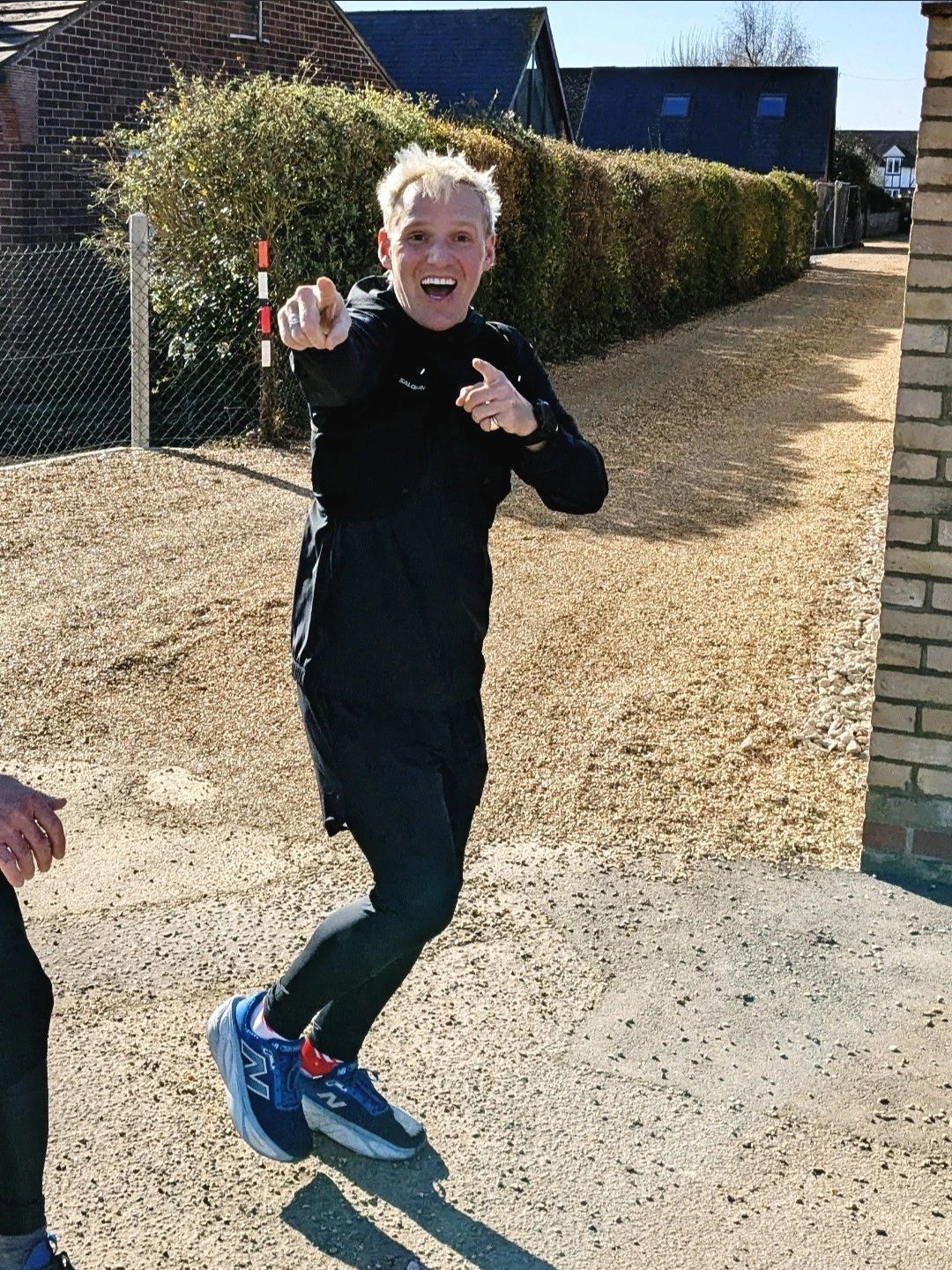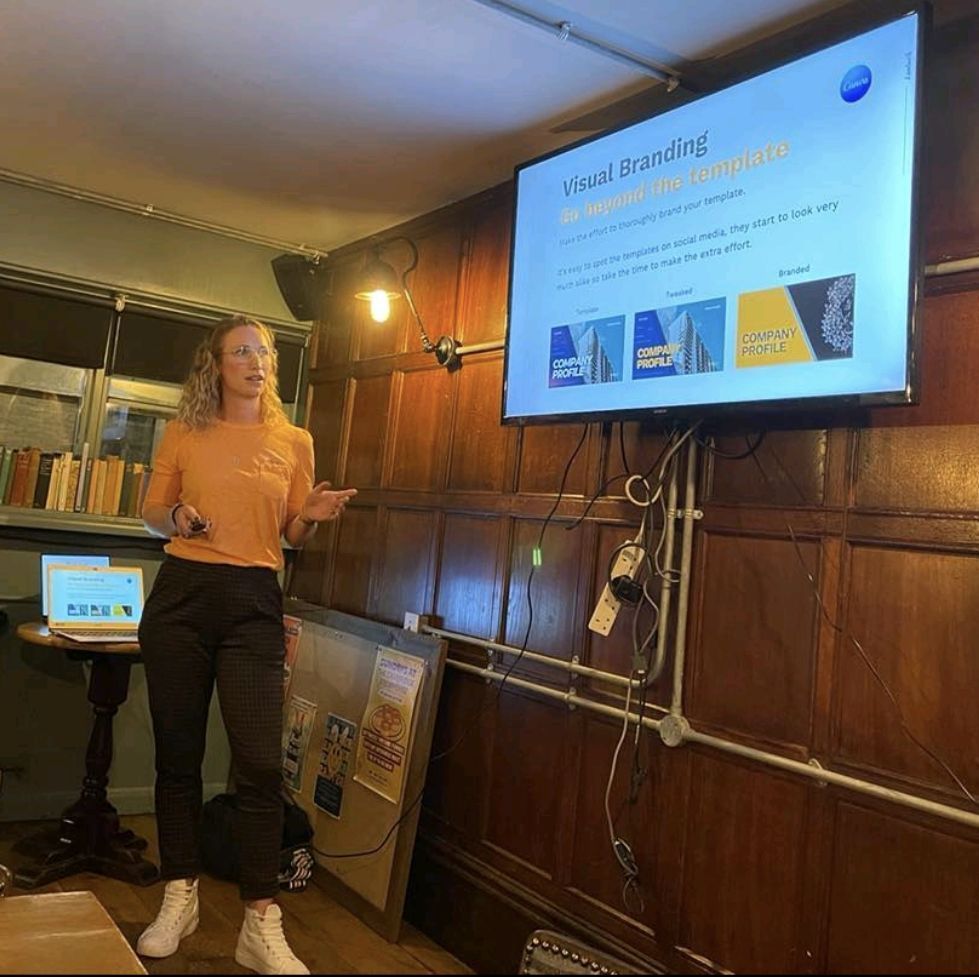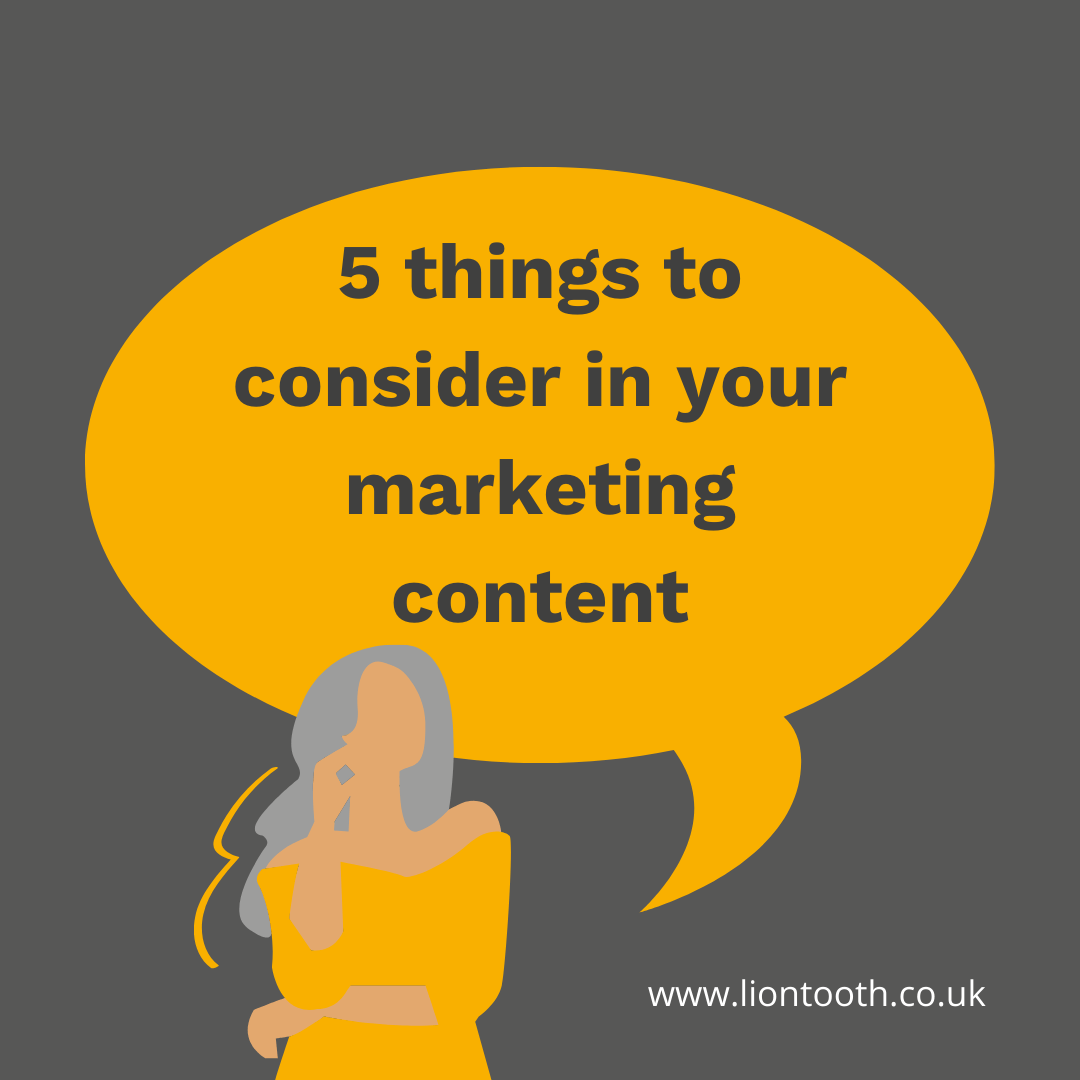Branding - My Top 5 Points to Better Understand What's Involved
- By Lisa Ellison
- •
- 31 Mar, 2022
- •
Feel more confident in a conversation around branding

1.
What is
branding?
You really need to understand this before you can move forward with anything else. It’s not just the logo. Imagine your brand is a person: a good-looking person will only get so far, if there’s no substance to back-up the looks, let’s be honest, we lose interest pretty quickly. This is your brand. Make sure that the visuals are backed with a solid substance.
2. Target audience
You need to know who this is and really understand them and build your brand around them. There’s no point in having a lovely brand if it doesn’t appeal to your target audience. To learn more about the level of understanding that you should have around your target audience, check out my previous blog posts.
3. Brand personality
This needs to appeal to your target audience. When you meet new people, you decide whether you’d like to see them again (whether that’s personally, professionally or romantically) based on their personality. Think about your brand in this capacity. I shared a post on LinkedIn asking if your brand and your target audience were in a room, would they be drawn to each other?
4. Tone of voice
You need to make sure that you’re using the right language, pace (even in written content!), terminology etc to appeal to your audience. You need to be ‘speaking’ to someone at their level. Don’t try to show off with your fancy terminology if it’s going to leave your audience lost and overwhelmed. This should suit your brand personality. If you have the personality of a well-educated, grounded and experienced 50-something female, it wouldn’t be right to speak with the tone of an excitable 8-year-old boy who’s talking about his latest Disney figures (I’m not here for the stereotypes).
5. Visual
Like meeting a partner, you want to feel attracted to them! Your visuals need to be clear, consistent and visually appealing to your target audience. Don’t create something that YOU think is beautiful/striking/bold/classy if it’s not what will appeal to your target audience.
At the end of the day, we’re all here to make money, so we need to make sure that the product or service we’re selling APPEALS to those lovely people that are going to spend their hard-earned pennies with us.
Don’t rush this process, take your time and think it through. Make sure it’s right.
What you build now could be the make or break of your business so it’s worth investing the time and money to get it right from the beginning.
If you'd like help and advice for your business, contact me now to see how I can help - lisa.ellison@liontooth.co.uk.
Does your brand feel a bit fuzzy? Let’s fix that.
The Define & Align Workshop
is designed to bring clarity, structure and purpose to your brand- fast.


Jamie Laing - before you roll your eyes and scroll on, hear me out. (I know, the photo gave away my cliff hanger!) You may have been one of the 50,000+ people that saw my LinkedIn post last week, very much a throw away passing comment, essentially, to say I drove past Jamie Laing on my way home from the school run whilst he was on his fundraising mission for Children In Need.
I followed the story closely last week, quite hooked on his progress and whether or not he would make it. I'm not a celebrity-obsessed person and I rarely engage with anything celebrities do but last week was different and I'm sure I'm not the only one. I believe that many people didn't know he was even embarking on that challenge until last week - I didn't and I listen to Radio 1 daily! I also believe there's a lot of people that either don't know who Jamie Laing is or do know and don't particularly like him - we can't please everyone!
So, what was it about his fundraising effort that gripped the nation and led to him raising over £2m?! It's all about the story. And *this* is a great example of marketing done well - with an emphasis on storytelling and humanising your brand. His fundraising effort, backed by BBC Radio 1 coverage, provides a perfect case study on the power of storytelling in marketing. His journey emphasised his struggle, determination, vulnerability and honesty and that played a pivotal role in engaging the public emotionally and driving donations. If his personal narrative hadn’t been shared so openly, it’s unlikely that such a significant amount would have been raised.
This is something I've also experienced in fundraising efforts that I've been involved in and it makes all the difference but it takes strength to be vulnerable, and I'll always admire those who found the strength to tell their story (you know who you are 💛).
Here's what we can learn about the value of storytelling in marketing:
Emotional connection drives action : Jamie's story wasn't just about asking for donations; it was about sharing his personal experience and struggles throughout last week. People are more likely to connect with a cause when they can empathise with the storyteller. In marketing, emotional engagement creates a bond between the audience and the brand, making them more likely to engage.
Vulnerability builds trust : By being honest and vulnerable about his efforts and the challenges he faced, Jamie Laing built trust with the Radio 1 listeners. Vulnerability *humanises* a brand. In marketing, being transparent and acknowledging (and addressing!) flaws can enhance credibility and build a stronger, more authentic relationship with consumers.
Narrative creates value : Jamie Laing didn’t just promote an event, he shared a compelling and authentic story about his commitment. In marketing, your story can be the difference between blending in and standing out. Crafting a narrative around your brand or product creates meaning, making it more likely to stick in the minds of consumers.
Great - now how can you implement this in your marketing?
If you have ever worked with me, you'll have heard me going on about the importance of authenticity. This applies to everything from branding to customer service. If a brand is transparent about its processes, challenges and goals, customers are more likely to engage and support it.
Emotion drives engagement - whether it’s a product, service or cause, storytelling can create an emotional connection that compels action.
Consistent storytelling over time, where customers can see growth and commitment, helps keep them invested.
So basically, Jamie Laing’s Children In Need campaign demonstrated that storytelling - driven by vulnerability, determination and honesty, was the key to the level of success in his fundraising last week.
For marketers, it highlights that connecting with people on an emotional level, telling authentic stories and leveraging the right platforms can make all the difference in achieving success.
It can feel difficult to build emotion into corporate marketing but there's ALWAYS room to be human.
Does your brand feel a bit fuzzy? Let’s fix that.
The Define & Align Workshopis designed to bring clarity, structure and purpose to your brand- fast.

Sometimes I'll get a message to my inbox referencing my marketing agency
👀 God no! I'm
not an agency! No
. Sorry, no.
I'm a 1.5-person band. (The other half is my husband who's a silent partner, providing the incredible design skills). I don't want to be thought of as a marketing agency. For me it has connotations of frustration, waiting, chasing, and to be fair, more often than not incredible results but still.
I'm a no-nonsense , to the point communicator .
I like to be efficient and get stuff done and that includes getting results for my clients . I like the fact I'm basically flying solo with this, it's easy. It's straightforward. It's DONE.
Let me give you context and insight...
I have experience with agencies from BOTH sides - I've been the client AND the service provider. Honestly, I had challenges with both. See if anything sounds familiar:
From a client perspective , my biggest frustrations were always...
- The huge bill. Sorry guys, I always found it eye watering even though I wasn't paying!
- Not being able to get hold of my point of contact and waiting whilst others frantically ran around trying to get answers for me.
- I felt bad for (and frustrated about) the person playing piggy in the middle. I couldn't speak to Studio to get answers or explanations about design issues/challenges/restrictions. Information was often lost in transit.
As the service provider , (for me) these were my biggest frustrations...
- There too many systems and processes that got in the way of me just getting on and providing the level of service I wanted to.
- Too many other cogs in the wheel slowing down the process.
- Too many hoops to jump through and restrictions.






